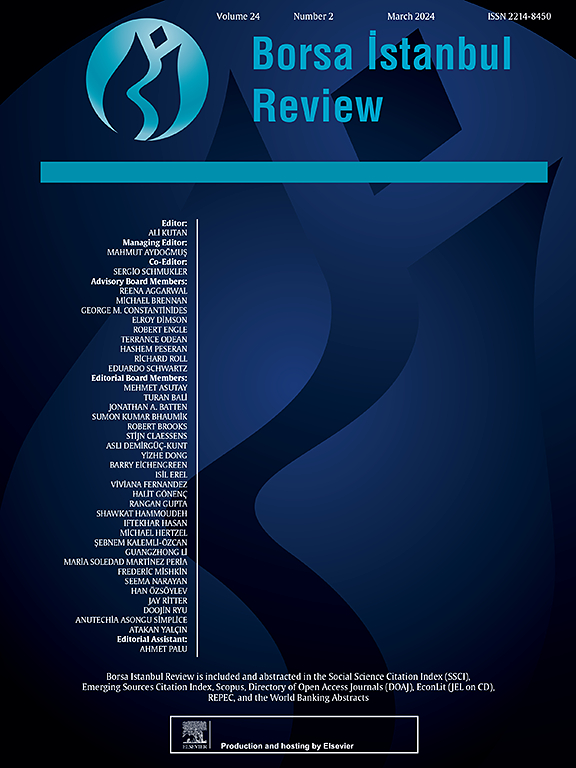The cost of environmental inequality: Evidence from offsite investment
IF 6.3
2区 经济学
Q1 BUSINESS, FINANCE
引用次数: 0
Abstract
The unequal distribution of resources and unjust utilization of the environment not only imperil the global ecological equilibrium but also undermine the sustainable development of the global economy. By delving into enterprises' offsite investment behavior amidst environmental inequality, insights into their environmental stewardship in the global arena can be gleaned. Drawing on data from Chinese non-financial enterprises spanning 2007–2020, our findings underscore that environmental inequality spurs offsite investments by enterprises, with capital flows predominantly directed towards other provinces rather than remaining localized. Mechanism analysis from economic perspectives reveals that environmental inequality adversely affects corporate income growth, and the resulting environmental governance pressure transfers to enterprises, reducing corporate competitiveness and prompting capital flight. Additionally, mechanism exploration from strategic perspectives reveals that environmental inequality leads to higher corporate financing costs, increased default risks, and a heightened risk of stock price collapse in the capital market. The financial pressure of addressing environmental inequality also transfers to enterprises within the jurisdiction, compelling them to seek sustainable development through offsite investment. Our analysis of heterogeneity indicates that the enhancing impact of environmental inequality is more pronounced among firms that receive low subsidies, are situated in the central and eastern regions of the country, contend with sluggish markets, possess non-state attributes, exhibit low technological advancement, and have high pollution intensity. Moreover, environmental inequality influences the industrial composition of the destination where capital flows. This study provides novel insights into evaluating the economic consequences of environmental equity and corporate capital management, furnishing a scholarly basis for advancing environmentally sustainable development.
求助全文
约1分钟内获得全文
求助全文
来源期刊

Borsa Istanbul Review
Multiple-
CiteScore
7.60
自引率
3.80%
发文量
130
审稿时长
26 days
期刊介绍:
Peer Review under the responsibility of Borsa İstanbul Anonim Sirketi. Borsa İstanbul Review provides a scholarly platform for empirical financial studies including but not limited to financial markets and institutions, financial economics, investor behavior, financial centers and market structures, corporate finance, recent economic and financial trends. Micro and macro data applications and comparative studies are welcome. Country coverage includes advanced, emerging and developing economies. In particular, we would like to publish empirical papers with significant policy implications and encourage submissions in the following areas: Research Topics: • Investments and Portfolio Management • Behavioral Finance • Financial Markets and Institutions • Market Microstructure • Islamic Finance • Financial Risk Management • Valuation • Capital Markets Governance • Financial Regulations
 求助内容:
求助内容: 应助结果提醒方式:
应助结果提醒方式:


